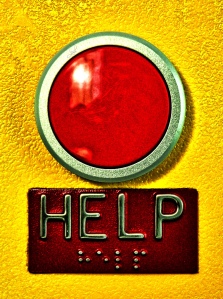
S. Elliot Brandis
This softly spoken engineer spends half of his time dreaming up new worlds for us to enjoy through his writing. S. Elliot Brandis is a talented author who has just published his post-apocalyptic Sci-fi novel – Irradiated.
Elliot also has a recently released short story─18/20, in the anthology, 18. I have been fortunate enough to catch up with him to talk about his writing and what makes him tick. This is what he had to say.
Allan Walsh: Hi Elliot, your story 18/20 in the anthology, 18, is set in a post-apocalyptic world. I’ve read a few of your stories to date and noticed this is not the only one with a post-apocalyptic theme. Is this a topic that stimulates your creative writing?
S.Elliot Brandis: Hi Allan! You’re not wrong—I love dystopians, both as a reader and a writer. I see myself more as a Speculative Fiction writer than a Science Fiction writer. Is there a difference? Well, it depends who you ask, but when I sit down to write a story I don’t think What will happen with science in the future? but instead What will become of mankind?
And, for me, this tends to lead to dystopic visions. 18/20 shows a society on the brink of collapse, while Irradiated is set long after the fall. Creatively, these settings open up so many different possibilities. You get to create a world from scratch, as close to or as far away from modern society as you like. To me, this is the fun of fiction. I get to build worlds and create new lives.
Allan Walsh: In your new novel, Irradiated, there appears to be a connotation towards the wild west. Was this intentional and if so, are you a big fan of westerns?
S.Elliot Brandis: I think this is a very natural, organic connection. I didn’t sit down and try and infuse western elements into my novel. I do, however, think there is a huge overlap between a low –technology post-apocalyptic landscape and that of the old American frontier western. You take away petrol and electricity, made the landscape harsh and sparsely populated, and suddenly it begins to invoke the feeling of the ol’ west. Every confrontation comes with the potential for danger, and people can get away with being a little more, well, wild.
Am I a fan of westerns? Not particularly the old spaghetti western movies, but I do love stories with a good southern feel. Cormac McCarthy’s Border Trilogy is one of my favourite pieces of literature.
Allan Walsh: Both Irradiated and 18/20 have well developed and utterly evil antagonists. Where do you draw your inspiration for such despicable characters?
S.Elliot Brandis: I know I created her, so I’m probably not the fairest judge, but I freaking love The Queen in Irradiated. She my favourite character, of all my creations.
I think the trick to writing the bad guys is that you have to make them think they’re the good guys. Nobody is evil just for the sake of it. In The Queen’s mind, she’s saving and protecting her own people. And when the stakes are as large as that, you can justify the brutality of your actions.
The other thing I try and do is make the good guys the bad guys, sometimes. My protagonists often do despicable things. They kill, they lie, they deceive. It’s what makes them ring true. Nothing is black and white. My novel is a big melting pot of grey.
Allan Walsh: I remember when you first joined Vision Writer’s group, you were already a well-established writer. How do you think Vision has helped you to further your talent as a writer?
S.Elliot Brandis: At the risk of surprising you, I have to disagree. When I joined Vision, I wasn’t established at all. The story you all critiqued, The Worst of Paths, was the first complete story I’d written in about ten years. I’ve written limitless reports, two thesis, multiple blogs, and all sorts of things, but that was the first time I’d sat down and completed a work of pure fiction.
How has Vision helped me? It’s given me incredible confidence. I can’t quite explain it, and it probably sounds a bit wanky, but I feel I have a natural aptitude for fiction. The kindness and support offered to me by members in the group shifted my mindset from this is what I want to be to this is what I can be. It requires a lot of hard work, but that’s what makes it worth the while.
Allan Walsh: Your style of writing is very literary. Which authors do you admire and have they encouraged your writing style.
S.Elliot Brandis: I find it very difficult to define what makes a work ‘literary’. I’ve heard my work described this way quite a bit now, but it’s not something that I deliberately set out to do. When I write, I listen to the rhythm of the prose, the feel of the words, and do what feels right in my mind. The result is what you read.
I’m a huge reader, and love science fiction. Despite what some people believe, the best science fiction is incredibly well written. Kurt Vonnegut, H.G. Wells, Arthur C. Clake, John Wyndham, Hugh Howey… they’re all fantastic writers of prose. Even Douglas Adams has a rollicking rhythm that bleeds off the page. I also think that every writer should read a wide range of fiction. I don’t pay much attention to genre and labels, and read anything that interests me, from any era — Irvine Welsh, Jonathan Safran Foer, Cormac McCarthy, Hunter S. Thomson, Michael Chabon, and so on, so forth. I think having a broad base of influences has helped my own work immensely.
Allan Walsh: It looks like you have been busy with your writing recently, with stories in two anthologies and the publishing of your new novel. What can we look forward to seeing from you in the future?
S.Elliot Brandis: I’ve just published Irradiated, and am working very hard on the sequel, Degenerated. I actually started writing Degenerated back in February, and have recently typed out the final page. At the moment, I’m carefully rereading and reworking the manuscript, a page at a time, before sending it to my editor in June. If all goes well, I’m hoping for a July/August release. From there, it’s onto the third and final book.
After, I have a few ideas I want to work on. I want to write a story about the computer on board a long-distance space flight. You know how the AI is always made into the villain? The crazy, monotonous on-board system that goes crazy and kills them all? Well, I want to make them the good guy. I also want to write a novel about an android, struggling to survive after the fall of man.
So many ideas, so little time to write them.
Allan Walsh: It’s been a pleasure talking to you Elliot, thank you for taking time out to speak with me. I look forward to seeing what great things lie ahead for you in your promising writing career.
S.Elliot Brandis’ story 18/20, can be found in the anthology 18, here and his new novel – Irradiated, here. To find out more about S.Elliot Brandis and his work, check out his website here.







